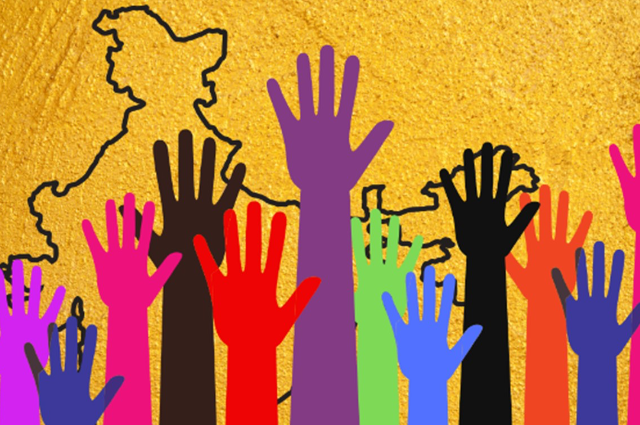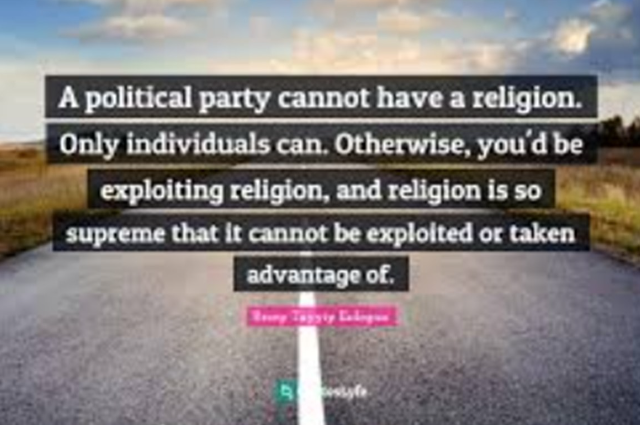
It has been almost eight decades since India got political independence. Why political independence? We often use the term independence, but do we have gained complete independence? The independence not only covers the right to choose our representatives but also the right to question our representatives and seek just answers from them, the right to have a view and opinion without the fear of being suppressed, the right to follow any faith without the thought of being prejudiced, the right to present a constructive model without being destroyed by power.
Since independence, India has witnessed the promises made by many political parties. However, how prudent Indians, especially youth, have been in evaluating the effects of promises made by political parties is a most concerning matter of an hour. Do these promises deepen the social divides or make India an instrument for inclusive growth, development, and peace. Are political leaders genuinely concerned about the nation and its people, or have they aspired only for their gains?
Through this piece of writing, we will try to understand the politics expected from young political aspirants.
India is rich in demographic dividends and is a diversified country where different religions are followed, and religious tolerance is given a sacred place in the constitution. Religion and faith are considered personal matters, but nowadays, these terms are often heard in Political rallies to strengthen the agenda of political parties. Today, issues like the standard of living, economic growth, poverty, peace, and infrastructural social and spiritual development are merely raised. An essential issue of pertinence importance to every citizen is faith or religion.

Let us first try to understand the aspects of identity politics and inclusive growth politics.
Identity politics is a tendency for people of a particular religion, social background, race, gender, class, identifying factors, etc., to form exclusive political alliances or agendas to promote their specific interests without considering the larger population's interests or concerns. On the other hand, inclusive politics does not favor the interest or concerns of a particular religion, caste, or gender but talks inclusively about the growth and development of everyone without any biasedness or prejudices.
As a developing country, India should concentrate its overall efforts on inclusive and constructive growth, and political leaders should focus on a manifesto that builds peace in society. Some researches and studies substantiate the devastating effects of identity politics. In a paper published in the Indian journal of political science, "the myth of identity politics in India "by Srimayee Dam, it was found that identity politics becomes an instrument for self-actualization and what challenges it poses to the proper functioning of the country. However, it is a product of failures of proper governance.
The recent case of the Delhi riots in 2020 signifies how politicians' identity politics cause a hefty cost to humankind and how deteriorating its aftermath could be to life and property. The thematic and conceptual framework of identity politics is faulty and unethical, where religion dominates the social, political, and economic spheres.
Low economic growth, least employment opportunities, and high inflation rates signal that political leaders have been spending an exorbitant amount on the welfare of particular communities at the expense of developmental projects that can create better opportunities for all. The communal fragmentation further curbs the optimum utilization and mobilization of resources.
Identity politics in India is programmed to classify and rule. Nevertheless, will the same tactics continue, or will our youth step forward to establish a productive society where peace and truth prevail on hatred? Will we be able to change our beliefs system? Will our beliefs will be an outcome of our spiritual wisdom rather than our religious procedures?
The design and enactment of policies that favor inclusive growth do not take place in a vacuum. A strong transition is required for political aspirants and every citizen who craves a country that is not broken into pieces but is unified by its charter diversification. Leaders' ideology should be transformed to "NATION and HUMANITY FIRST" from "COMMUNITY and RELIGION FIRST." This ideology will lead towards a focused and clear vision of young and ignited minds to dedicate themselves to the nation and develop a constructivist model that will serve society's grassroots level and higher echelons.
Any youth aspiring to join politics should understand that a nation is always bigger than his community or gender, or religion. Furthermore, his actions will have a direct bearing on the future of the nation and humanity. Their involvement in politics should be issue-based, not party-based.
The youngsters have to pave the way for inclusive growth where every segment is benefitted. They should be able to look rationally at the approaches used by their parties and should be transparent in their deeds.
This is worthy to remember that though identity politics helps a political party to win elections in the short run, what matters, in the long run, is transparency, inclusive growth and development, and integrity.
